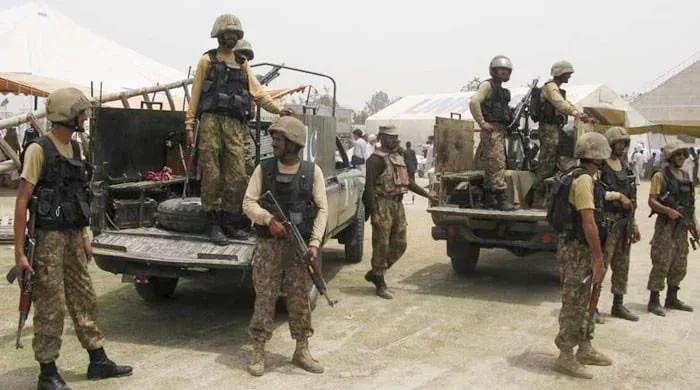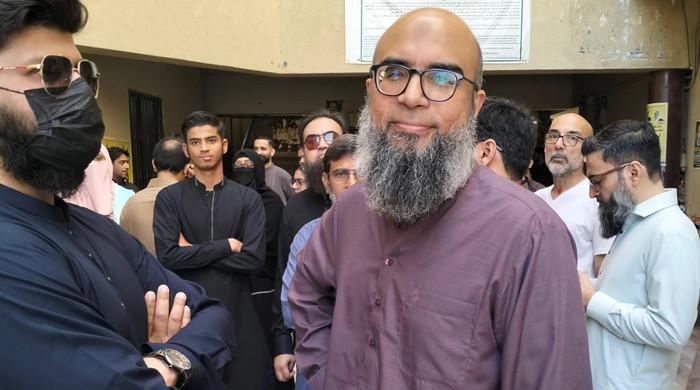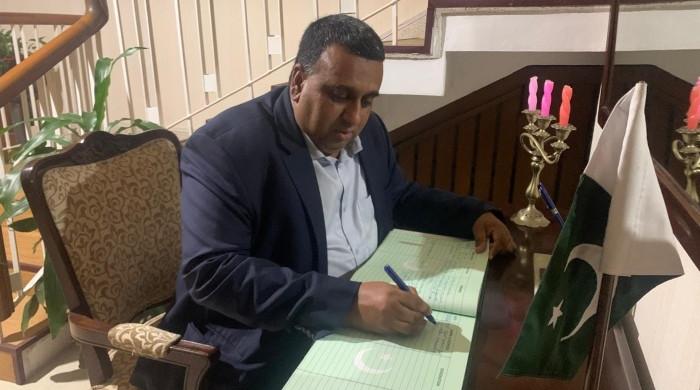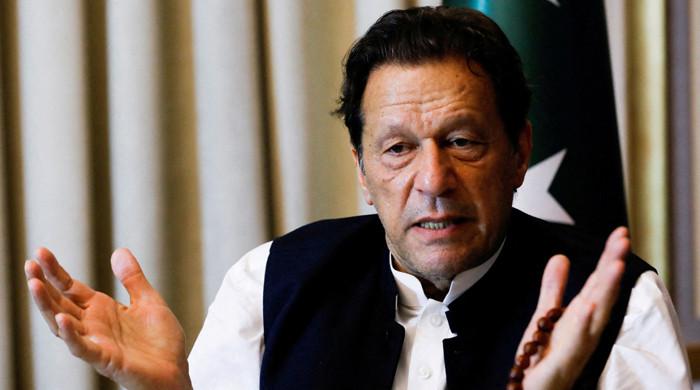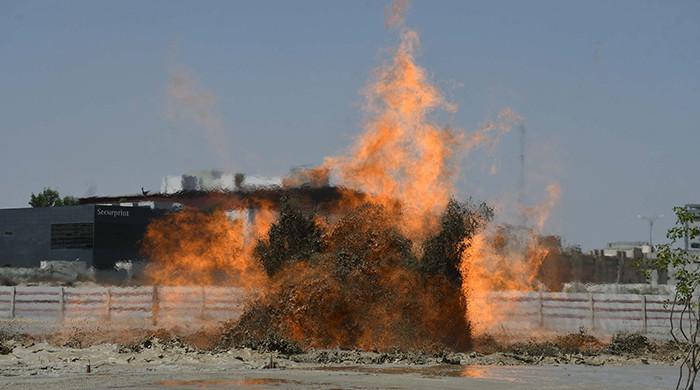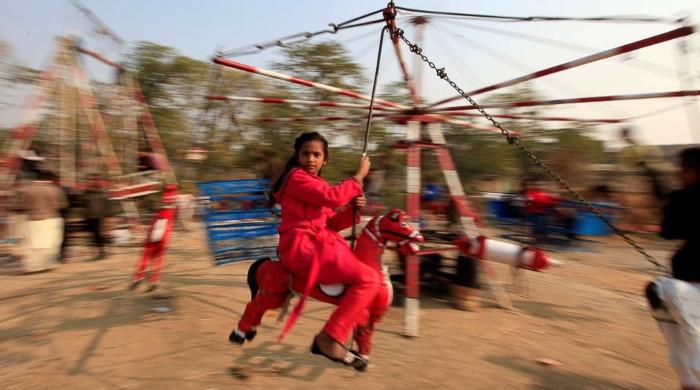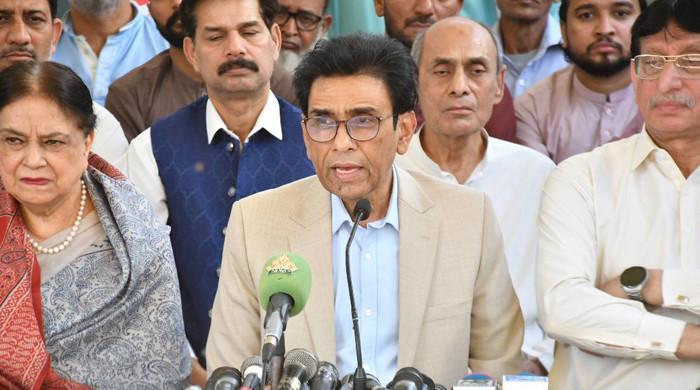Islamabad rally law violation case: PHC grants transit bail to Omar Ayub, Asad Qaiser
Court also grants bail to PTI's Zartaj Gul and Faisal Amin till October 10
September 11, 2024
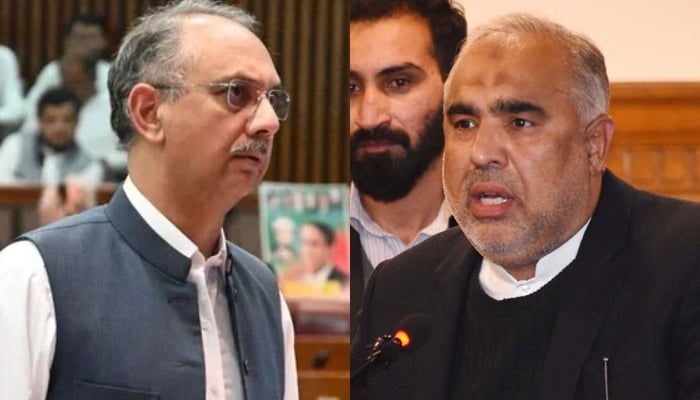
- Case filed for concluding rally past scheduled time: plea.
- Both demand transit bail to appear before court.
- Omar Ayub says Gandapur represents 40m people.
PESHAWAR: The Peshawar High Court (PHC) on Wednesday approved Pakistan Tehreek-e-Insaf (PTI) leaders Omar Ayub, Asad Qaiser, Faisal Amin and Zartaj Gul's petitions seeking transit bail in connection with cases filed against them regarding the former ruling party's power show in Islamabad September 8.
Justice Shakeel Ahmed of the PHC heard the pleas and granted them bail till October 10.
In their petition, Omar and Qaiser said cases were filed against them and other party leaders by the Islamabad administration for ending the rally two hours after the scheduled time.
The petitioners said that they want to appear in the relevant courts and demanded for transit bail in this regard. The plea also said that they fear their arrest.
Omar, while speaking to media persons today, questioned the powers behind masked people entering the Parliament to arrest lawmakers.
"This does not work in a democracy. Ali Amin Gandapur is the chief executive of the province and he represents 40 million people," said the PTI leader.
The development comes after the Islamabad police launched a crackdown on PTI leaders including Chairman Barrister Gohar Khan and arrested them outside the Parliament House for allegedly violating the newly enacted public gathering law during the rally.
The PTI lawmakers have been accused of attacking police officials and violating regulations devised under a new law — Peaceful Assembly and Public Order Bill, 2024, during the much-hyped Islamabad public gathering last week.
In relevant developments today, the government and the opposition unanimously adopted a resolution agreeing to constitute a 16-member committee for resolving issues related to the house in the aftermath of the alleged arrests of PTI lawmakers from within the Parliament House premises.
The development came as Speaker Ayaz presided over the lower house's session against the backdrop of heightened political tensions.
Additionally, the speaker had also suspended the House's Sergeant at Arms and four other security officials for the security lapse following the arrests.




